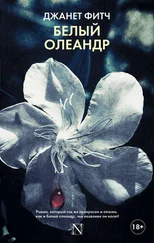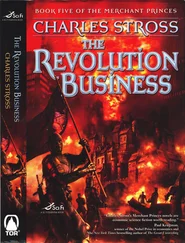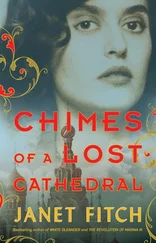Right here in front of Kuzmin? She was waiting—I couldn’t refuse her. Should I pick one that was most technically correct? Or the one I’d written about her? My voice hoarse, my lips dry, I began:
O blessed bird of prey
With curved beak and eye of jet
Who sees each tiny creature dart
Sweeps him up, his sweetness pulsing…
Her pretty friend applauded when I was done, and Kuzmin lit a cigarette and squinted against the smoke. But she, the poet, the eagle, simply nodded and extended a hand for the pages. “Marina Makarova,” she read from the page. “Are you in love, my dear?”
I nodded. How did she know?
“Is it going well?”
I laughed. What could I say? “He barely knows I’m alive.” She took a card from the table, the card of the Stray Dog Café, and signed it: To Marina—Bravery, in love as in art. A.
Now, in the salmon-pink bedroom, I began again the poem of the kiss, the furs, the fire, the snow.
VARVARA—FOREVER PUSHING ME ahead, opening doors I was afraid to pass through, even though behind them were things I desperately wanted. I try to remember how it was before she came, when it had been just Mina and myself. My life had been sweet and dull, a normal bourgeois Petersburg girlhood: studying, going to the kinotheater on Nevsky Prospect—at first accompanied by my governess but later with my brothers, with Mina. We watched detective films, westerns, romances, Kholodnaya in Children of the Century and Her Sister’s Rival. With her clear eyes and round face, Mina would grow to resemble her, though not back then, when she was still a chubby, bespectacled mama’s girl. Away from school, she and I spent most of our time together, but at the Tagantsev Academy, we kept to our own groups. I drifted restlessly between cliques—the literary set, those melancholic Ophelias, and the drama girls, livelier and more flamboyant but also histrionic and full of vicious gossip. Rather than follow me into such exhausting company, Mina retreated with one or two other misfits to study for the next exam and secretly eye the popular girls with an air of wounded longing.
Then Varvara came, the volatile reagent that forged of us a third element. We’d heard she’d spent the fall at the Catherine Institute, a school for the daughters of the aristocracy, but had been asked to leave after a month or two. Before that, they said, she’d been living in Germany, a residence already exotic and questionable, but had to return home because of the war. At the academy, Varvara quickly polarized girls into advocates and detractors—mostly the latter. But how brilliant she made us feel, how advanced. She galvanized us. I abandoned my theatrical crowd, and Mina her drones, and we began to spend all our time in one another’s company. While I had been reading Idylls of the King, Colette, and Dostoyevsky—and Mina her eternal Dumas—Varvara was already tearing through Hegel, Engels and Marx, Kropotkin, Gorky, and Chernyshevsky’s What Is to Be Done?
I remember the first time I brought her home for tea, secretly hoping she’d say something shocking, so I could be a rebel-by-proxy—but she’d been irritatingly polite, her dark eyes glittering at the sight of the sandwiches. She’d praised the light streaming through the tall windows, the excellence of the cooking, the warmth and tidiness of the flat. But eventually she grew more talkative, telling Mother about her aunt in Germany, with whom she had been living when war broke out and the Russians were called home. “Really, it’s a shame we’re at war. We’ve got so much more in common with Germany than with England.” She had no idea that we had Volodya serving under arms or that Father was a sworn Anglophile.
“Weak or strong?” Mother asked, so picturesque in her blue silk blouse, pouring tea from the silver samovar.
“Strong,” Varvara said.
Mother asked casually, “And where does your family live, Varvara? Are you near here?”
In Petrograd you never had to ask, What does your father do? How much do you live on a year? What are your prospects in life? You only had to ask, So where does your family live? My mother was a master of strategy, a Suvorov of manners.
“On Vasilievsky Island,” Varvara said, accepting her tea, which was served in a cup and saucer, English style, rather than in glasses. She dropped two cubes of sugar into it. Three. Four. My mother’s good breeding wouldn’t let her stare. But Seryozha kicked me under the table, rounded his eyes.
“Is your father at the university?” Vasilievsky Island could be elegant near the Neva, especially in the vicinity of the Twelve Colleges of the university, which looked across the river toward St. Isaac’s Cathedral and the Winter Palace. But away from the river it became more working class, slummier as you moved north and west, toward the factories and shipyards. Mother’s mind was a social card catalogue, narrowing, calculating. Vasilievsky Island. Four sugars! Bobbed hair. Terrible shoes. Widely traveled, lived in Germany, well spoken. Such horrible opinions! Professor’s daughter? I could hear the cards clicking. “Does he teach?”
“Il est mort.” She dropped the words onto the cutwork tablecloth like dropping a rat there, then reached for another sandwich. “Measles. We got it, too, but we recovered.”
“Ah, kak zhal’,” Mother said. What a pity .
Afterward, we retired to my bedroom. Varvara immediately fished a sandwich out of her pocket and wolfed it down. “Where do they get all the food?” she asked. “You have contacts in the country?”
I’d never thought about it. “Maryino…” Our estate near Tikhvin. “But it’s mostly timber. I don’t know… Vaula goes to the shops.”
“There’s nothing in the shops,” Varvara said, trying my bed, bouncing on it. “We haven’t seen butter in months. It’s fifteen rubles a pound if you can get it. We’re eating horsemeat, not minced pork and salmon. Come out of your dream world.”
I flushed. At fourteen, I never really considered where our food came from, not until that very instant. I was not a callous girl. I knew there were poor people, sad people—I wasn’t blind. But the mechanics of our own family, how we tied into the general suffering, wasn’t anything I thought about.
“Women work twelve hours a day in this city. Just a few blocks from here.” Now Varvara was prowling around my room. She opened my wardrobe and began examining my dresses as if she were thinking of buying something. “Old ladies, pregnant women. On their feet. Breathing lint, breathing mercury all day in the tanneries. You really don’t know, do you?” She pulled out a frock, deep green velvet with a large collar of Belgian lace, and held it up to herself in the glass. “Then they stand in the queues.” She must not have liked the effect, for she wrinkled her nose and shoved the dress roughly back into the wardrobe. “And when the shops run out, they’re out. Except for people with the kapusta. ” Cabbage. Money. “For people like you, things appear by magic from under the counter, from a back room. I’ve seen it. It’s disgusting.”
I could feel tears welling up. Why was she attacking me? She turned her attention to my bookcase, pulled out a small volume—Coleridge. When she saw it was verse, and English to boot, she stuck it back on the shelf. “The police hold the lines back for you people,” she continued.
“Don’t say you people .”
“They take one look at your cook and let her go right in ahead of everyone.”
I tried to make a joke of it. “Maybe next time, we’ll dine chez vous . I’ve never had horsemeat.”
Читать дальше












